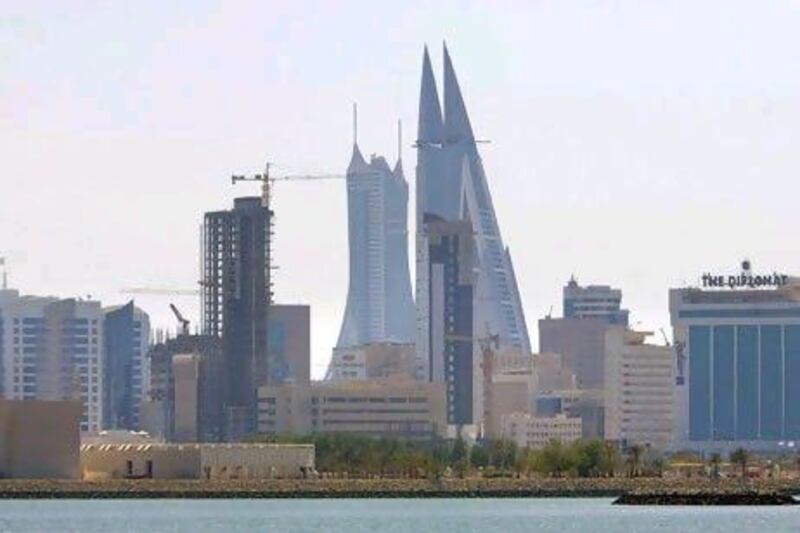Billions of dollars have been wiped off the value of Bahrain's economy in the month of protests that brought business there to a virtual standstill, top banking executives in Manama say.
"Definitely there is an impact on growth … but the impact cannot be more than 10 to 15 per cent impact of Bahrain's GDP," said Yousif Taqi, the chief executive of the sharia-compliant Al Salam Bank in Manama.
"As a financial centre there will be challenges for the government. I'd be surprised if it was more than 15 per cent."
Mr Taqi estimated losses of at least US$3 billion (Dh11.01bn) from Bahrain's GDP of $22.9bn last year. The Bahraini economy accelerated in the final quarter of last year from the previous three months, and grew 4.5 per cent for the whole year, data from the government showed.
The small oil exporter, which is not a member of Opec, grew 1.1 per cent in the fourth quarter of last year, up from a revised 0.9 per cent rise in the third quarter.
Sheikh Salman bin Hamad bin Isa Al Khalifa, the Bahraini crown prince, said the kingdom's economy had experienced "painful losses" worth hundreds of millions of dinars during the unrest.
In a speech on Bahraini TV last week, Sheikh Salman said the protests had "escalated beyond all limits", forcing the security forces and government to step in.
"Bahrain's progress and prosperity cannot be ruined by a few that wanted to make it fail," he said. "The main challenge … is to work for the continuation of the process of building, modernising and development in this country."
Mohammed Abdulla Isa, the chief financial officer at Bank of Bahrain and Kuwait, said: "The impact will be in the third or fourth quarter as companies still need to go through a transition period."
Bahrain has rapidly expanded its economy in the past decade, with real GDP peaking at about 8 per cent in 2008, and banking and financial institutions accounting for about a quarter of the boom.
The kingdom became one of the first to establish itself as a regional financial centre when it took over much of Lebanon's financial services industry in the 1970s, during that country's civil war.
Finance has become an important player in efforts to create jobs and diversify away from oil.
But oil still makes up a huge part of the country's economy and with crude trading at its highest in two and a half years, Bahrain will not be short of petrodollars.
Revenues from oil are already expected to reach $5bn this year, compared with about $670 million from non-oil segments, the latest budget from Bahrain's ministry of finance shows.
A $10bn aid package, expected to pump $1bn into the economy every year for the next 10 years, will also help the economy.
Bahrain's tourism industry is said to have lost more than $500m in the past six weeks.
Losses are still mounting and will keep doing so if immediate action is not taken, said Nabeel Kanoo, the chairman of the Bahrain Chamber of Commerce and Industry tourism committee.
The postponement of the Bahrain Formula One Grand Prix had alone resulted in a huge loss to the industry, he said.
The Bahraini government holding company Mumtalakat commissioned a study in 2008 that suggested the direct and indirect benefits of the F1 race contributed about $600m to GDP.





